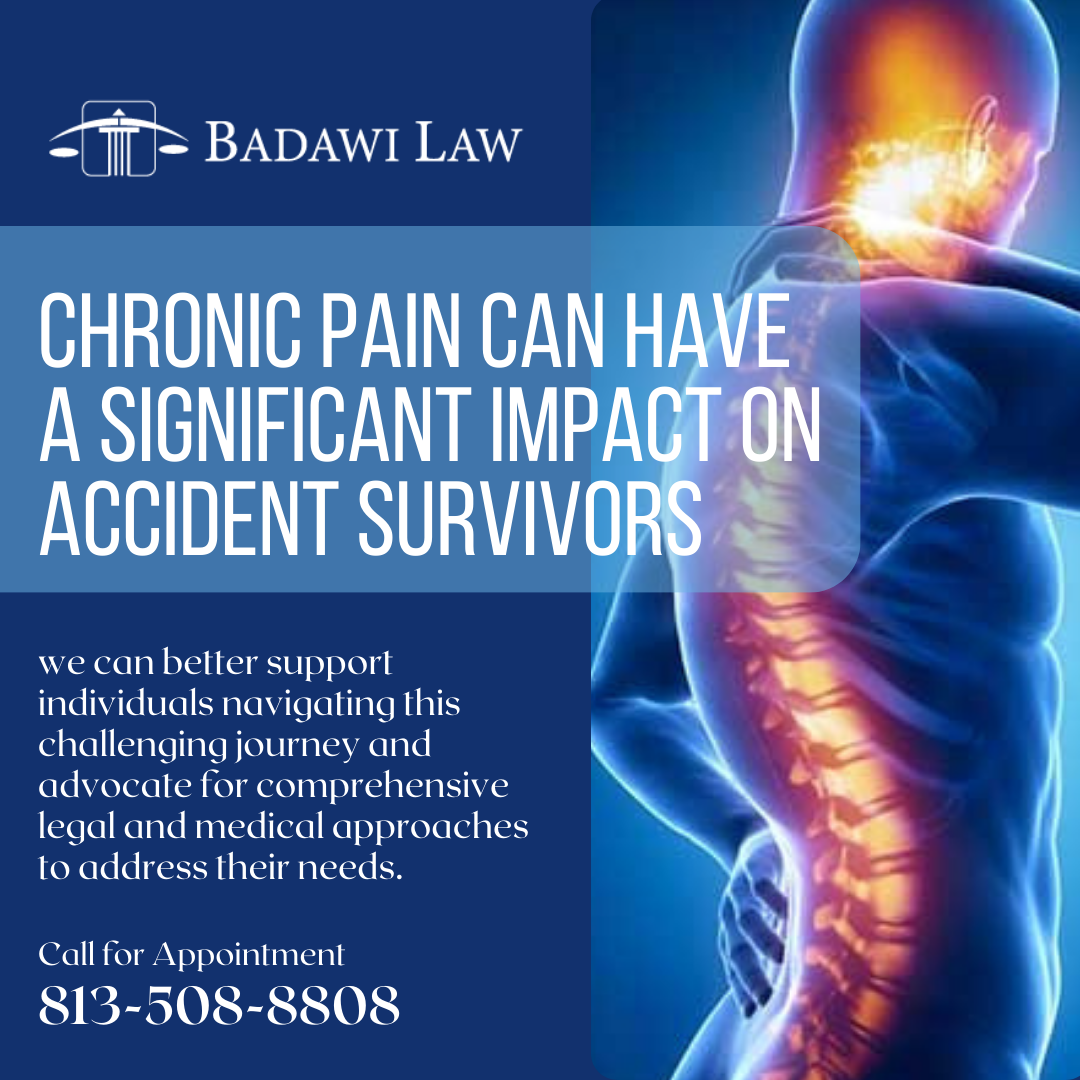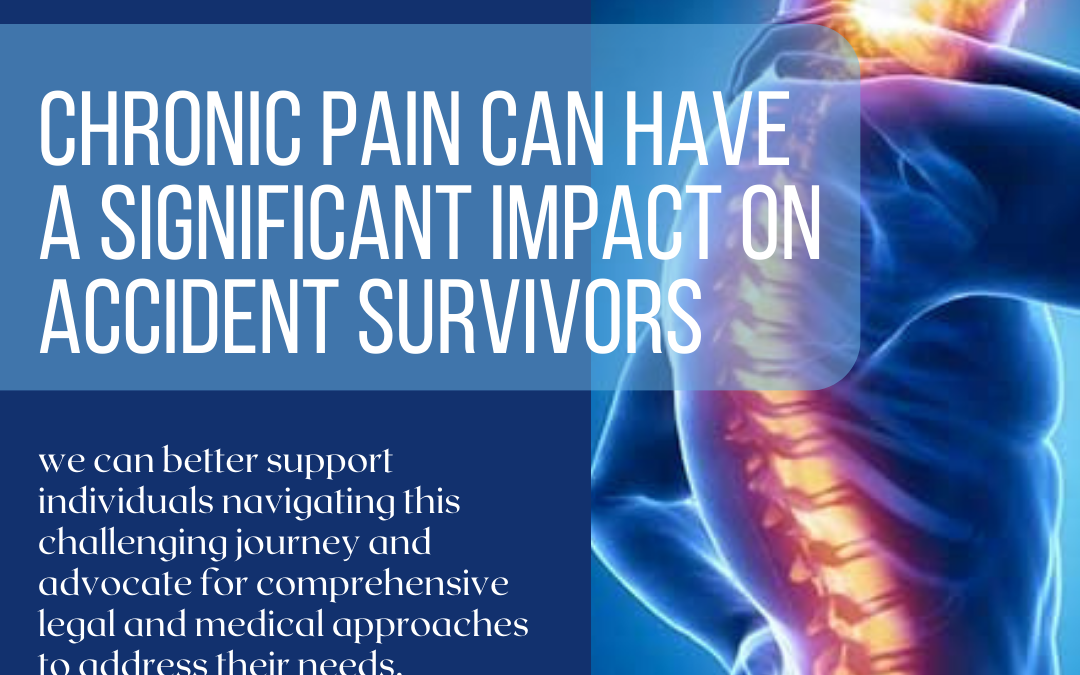Chronic neck pain resulting from accidents can have significant physical and psychological effects on survivors. Here's an exploration of both aspects:
Physical Toll:
-
Muscle Tension and Stiffness: Accidents can cause trauma to the neck muscles, leading to chronic tension and stiffness. This can result in reduced range of motion and difficulty in performing daily activities.
-
Structural Damage: Injuries like whiplash or cervical spine injuries can damage the structure of the neck, affecting the vertebrae, discs, and ligaments. This may contribute to persistent pain and discomfort.
-
Headaches: Chronic neck pain is often accompanied by frequent headaches. The muscles in the neck and shoulders may refer pain to the head, leading to tension headaches or migraines.
-
Nerve Compression: In some cases, accidents can cause nerve compression or irritation, leading to radiating pain, numbness, or tingling sensations in the arms and hands. This can further impact the individual's functionality.
Psychological Toll:
-
Chronic Pain Syndrome: Dealing with persistent neck pain can contribute to the development of chronic pain syndrome. This condition involves not only the physical pain but also emotional distress and mental health issues.
-
Impact on Daily Activities: Chronic pain can limit the survivor's ability to engage in daily activities, affecting their quality of life. This can lead to frustration, dependency on others, and a sense of loss of control.
-
Sleep Disturbances: Neck pain often interferes with sleep, contributing to fatigue and exacerbating the psychological toll. Sleep disturbances can impact mood, cognitive function, and overall well-being.
-
Emotional Distress: Living with chronic pain can lead to emotional challenges such as anxiety, depression, and stress. The constant struggle with pain and its consequences can wear down an individual emotionally.
-
Social Isolation: The physical limitations imposed by chronic neck pain may result in social withdrawal. Individuals may avoid activities or social gatherings, leading to feelings of isolation and loneliness.
It's important for accident survivors experiencing chronic neck pain to seek medical attention, including physical therapy, pain management, and psychological support. A comprehensive approach to both the physical and psychological aspects of chronic neck pain is crucial for improving overall well-being.







